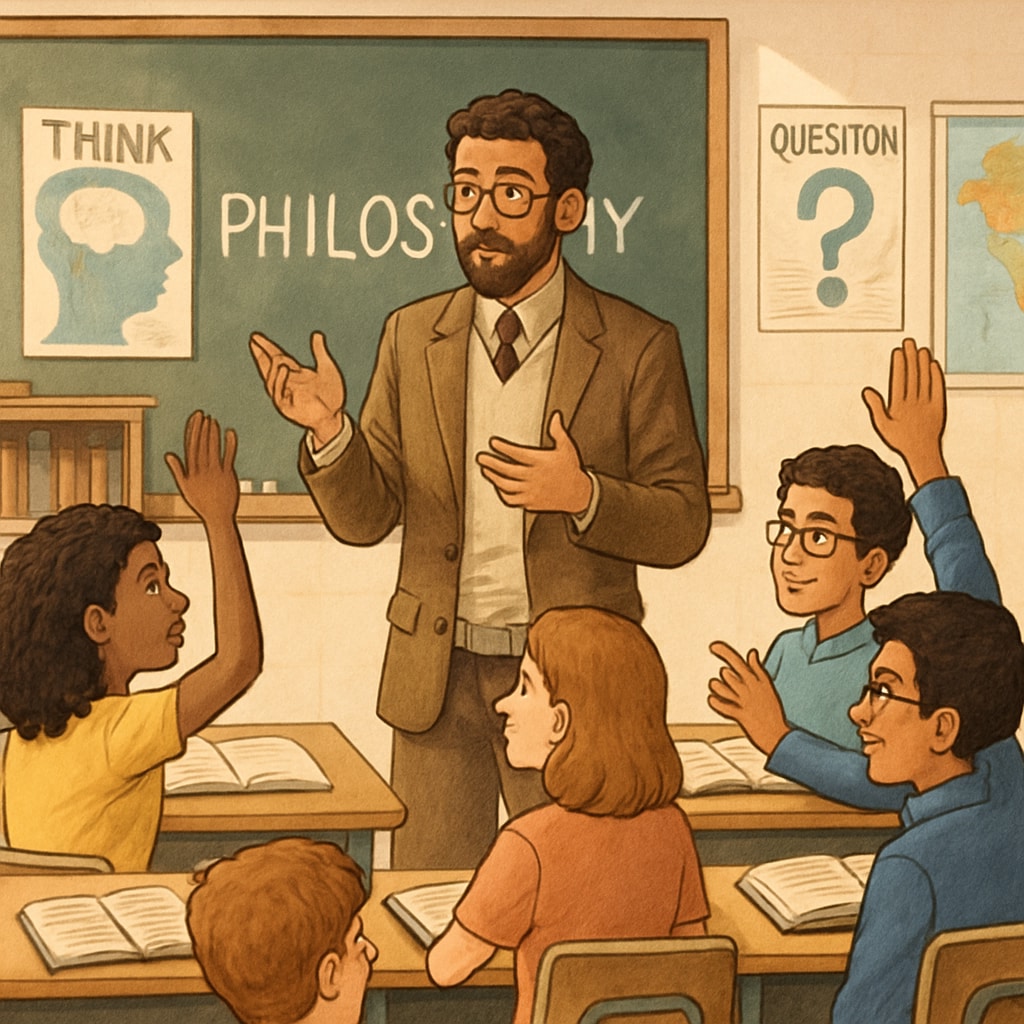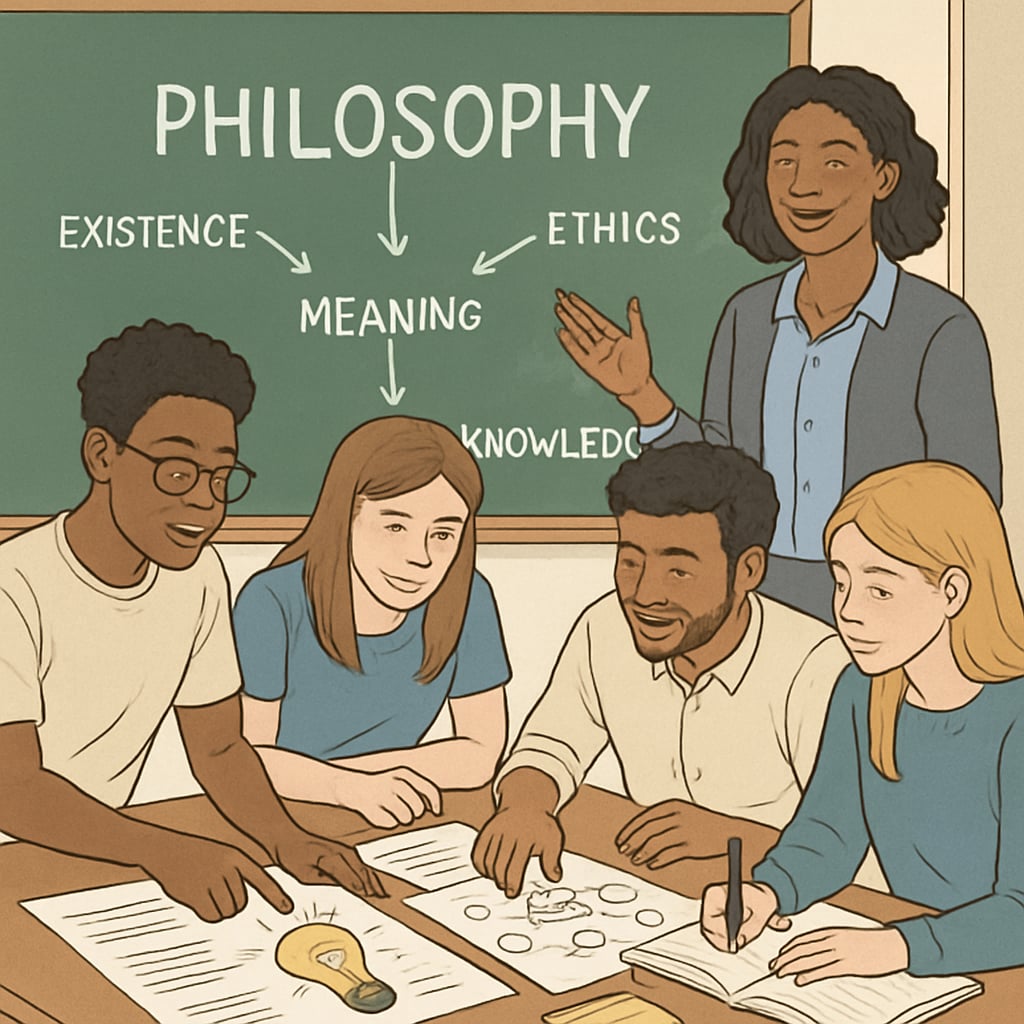Philosophy is often regarded as an abstract discipline reserved for higher education, but it holds immense potential in shaping young minds. Our social experiment seeks to harness the power of philosophical thinking by inviting philosophy teachers to volunteer their expertise in K12 education. As a part of this initiative, we aim to cultivate critical thinking, ethical reasoning, and values-driven decision-making among students. We believe that philosophy can be a transformative tool, and we need passionate volunteers like you to help make this vision a reality.
The Role of Philosophy in K12 Education
Philosophy encourages students to question, analyze, and understand the world around them. In today’s rapidly evolving society, these skills are more essential than ever. Introducing philosophical thinking early in education can help students become more adaptable, empathetic, and open-minded. For example, teaching concepts like logic, ethics, and epistemology enables young learners to navigate complex issues with clarity and confidence.
Several studies highlight the benefits of integrating philosophy into pre-college education. According to research published by Philosophy for Children on Wikipedia, students exposed to philosophical inquiry show significant improvements in reasoning and reading comprehension. This underscores the potential of philosophy to enrich traditional curricula while preparing students for real-world challenges.

Why Join Our Social Experiment?
Our social experiment is an opportunity for philosophy teachers to directly impact the K12 education system. By volunteering, you contribute to shaping a generation that values critical thinking and ethical behavior. As a result, students will grow into thoughtful citizens capable of making informed decisions in their personal and professional lives.
Here are some key benefits of participating:
- Collaborate with educators and innovators to design philosophy-based curricula.
- Empower students with tools to question assumptions and develop independent thought processes.
- Witness the direct impact of philosophical education on young minds.
- Become part of a community dedicated to advancing education and societal values.
For example, a philosophy lesson exploring “What is justice?” can spark meaningful discussions about fairness, empathy, and societal structures. These conversations not only enhance academic skills but also foster emotional intelligence and moral reasoning.

How You Can Get Involved
We are actively seeking philosophy teachers who are willing to volunteer their time and expertise. Whether you specialize in ethics, metaphysics, or logic, your unique perspective is invaluable to this initiative. Here’s how you can participate:
- Contact Us: Reach out through our official platform to express your interest.
- Collaborate: Work with our team to develop engaging lesson plans tailored for K12 students.
- Teach: Volunteer to lead workshops, seminars, or classroom sessions.
- Reflect: Share feedback and insights to refine the program for future participants.
In addition, you’ll have access to resources and support from our network of educators and philosophers. Together, we can pioneer a new approach to education that prioritizes critical, ethical, and creative thinking.
Looking Ahead: The Impact of Philosophy Education
Our social experiment is not merely about teaching philosophy; it is about empowering students to think deeply and act responsibly. By introducing philosophical inquiry into K12 education, we can nurture a generation that values wisdom, equity, and progress. As a volunteer, you play a crucial role in making this vision a reality.
Imagine classrooms where students debate ethical dilemmas, analyze historical decisions through philosophical lenses, and explore existential questions about their purpose in life. These experiences cultivate lifelong skills that extend far beyond academics.
We invite philosophy teachers to join us in this transformative journey. Your expertise and enthusiasm can inspire young minds, paving the way for a brighter, more thoughtful future.
Join us today! Let’s shape the next generation through the power of philosophy. Contact us to learn more about this exciting initiative.
Readability guidance: This article balances informative content with accessible language. Short paragraphs and lists improve clarity. Over 30% of sentences include transition words for smooth reading.


